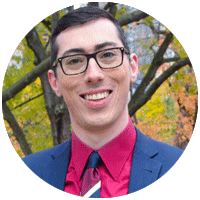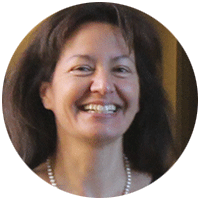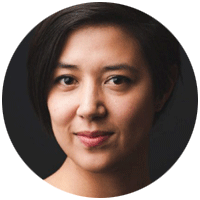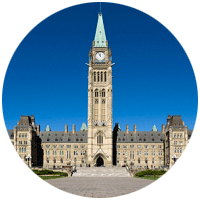On parle d’Ali Háji dans Lexpert; Jesse Hartery remporte le Prix André-Pratte inaugural; la candidate au LLM Michelle Hanlon mentionnée dans Bloomberg; le doctorant Brian Bird discute liberté de conscience; Yuan Stevens citée dans The Star; Mark Dance et Fraser Harland terminent leur série de lettres d’opinion dans Macleans; et Conrad Flaczyk remporte la 2e place du concours d’essai du IADC.
Embrace the Rebels
Heather Suttie, Lexpert, September 2017
Whether operating covertly or with all flags flying, rebels have a passion for what they do and want to make an organization better. BCL/LLB-MBA student Aly Háji, who was tapped to clerk at the Supreme Court of Canada for Justice Karakatsanis in 2018 favours doing “business as unusual.” Keep reading… [.pdf]
Jesse Hartery remporte la première édition du Prix André-Pratte
 Le 22 août, L’Idée fédérale a annoncé le gagnant de la première édition du Prix André-Pratte, visant à récompenser la ou le jeune auteur(e) ayant soumis à L’Idée fédérale le meilleur essai sur le fédéralisme. Il s’agit de l’étudiant Jesse Hartery, actuellement en 3e année du programme BCL/LLB, qui a ainsi vu récompensé son essai intitulé Towards A Restrained Approach to Canadian Federal Paramountcy. Il s’est ainsi mérité une bourse de 1000$. Fondée en 2004 par André Pratte, L’Idée fédérale (Réseau québécois de réflexion sur le fédéralisme) est un organisme qui a pour mission de faire connaître le fédéralisme comme mode de gouvernance pour les sociétés modernes.
Le 22 août, L’Idée fédérale a annoncé le gagnant de la première édition du Prix André-Pratte, visant à récompenser la ou le jeune auteur(e) ayant soumis à L’Idée fédérale le meilleur essai sur le fédéralisme. Il s’agit de l’étudiant Jesse Hartery, actuellement en 3e année du programme BCL/LLB, qui a ainsi vu récompensé son essai intitulé Towards A Restrained Approach to Canadian Federal Paramountcy. Il s’est ainsi mérité une bourse de 1000$. Fondée en 2004 par André Pratte, L’Idée fédérale (Réseau québécois de réflexion sur le fédéralisme) est un organisme qui a pour mission de faire connaître le fédéralisme comme mode de gouvernance pour les sociétés modernes.
The Battle for the Moon Begins
By Justin Bachman, Bloomberg, 20 July 2017
 An increasing number of nations and companies are headed there. One group says the UN needs to start making more rules before it’s too late.
An increasing number of nations and companies are headed there. One group says the UN needs to start making more rules before it’s too late.
On the 48th anniversary of Neil Armstrong setting foot on the moon, an Illinois attorney hopes to pocket as much as $4 million at a Sotheby’s auction of a bag that Apollo 11 astronauts filled with rocks. The bag’s history is as interesting as its travels: the U.S. government accidentally sold it in 2015, then fought the buyer, Nancy Lee Carlson, a suburban Chicago lawyer, to reclaim it. The feds lost that case last year and ceded the bag to Carlson, who is selling it Thursday.
“What we need to do is to create, basically, a Unesco for space,” said [McGill Law LLM candidate] Michelle Hanlon (@hanlonesq), a Connecticut attorney who is leading the effort, referring to the UN world heritage designation… Keep reading…
Brian Bird: Freedom of Conscience in the Canadian Charter of Rights and Freedoms
The Provocateur podcast, 20 July 2017
In this installment of The Provocateur, Gah-Kai Leung talk to Brian Bird, a DCL student in the Faculty of Law at McGill University, to explore the history and theory of freedom of conscience, which he dubs “the forgotten freedom.” We discuss what freedom of conscience is and how it can be distinguished from freedom of religion; the nature of freedom of conscience before and after the Charter came into effect; the limits of freedom of conscience; and the future of “the forgotten freedom” in Canadian society.
Ontario’s children’s aid societies grappling with how to monitor privacy breaches
Vjosa Isai, The Star, 15 July 2017
 Child welfare workers who pry into electronic records of youth in care are difficult to track, critics warn, with an alert system for possible privacy breaches used only on select files. Even though there are strict rules for accessing records, inappropriate searches can happen without anyone knowing about it, said Irwin Elman, the provincial advocate for children and youth, in an email…
Child welfare workers who pry into electronic records of youth in care are difficult to track, critics warn, with an alert system for possible privacy breaches used only on select files. Even though there are strict rules for accessing records, inappropriate searches can happen without anyone knowing about it, said Irwin Elman, the provincial advocate for children and youth, in an email…
While the Child Protection Information Network (CPIN) database streamlines information collecting and sharing, it can also bring the “possibility for seemingly unfettered access” to sensitive files of youth in care, said [McGill Law student] Yuan Stevens, a former Ontario Crown ward and researcher at the Berkman Klein Center for Internet and Society at Harvard University. Keep reading…
Three modest reforms can restore Canada’s democratic architecture
By Mark Dance and Fraser Harland, Macleans, 28 June 2017
 How independently minded parliamentarians, more powerful e-petitions and a strengthened Library of Parliament could revitalize our democracy.
How independently minded parliamentarians, more powerful e-petitions and a strengthened Library of Parliament could revitalize our democracy.
On the heels of Canada’s 150th birthday, our most iconic public building—Parliament’s Centre Block in Ottawa—will close for its most substantial structural overhaul since it burned to the ground in 1916. The project is meant to restore and preserve the building’s best heritage features, while equipping it to house our electoral democracy into the federation’s next 150 years.
But at this sesquicentennial, Parliament’s frailties are not only physical but institutional. The agenda in the House of Commons is driven almost exclusively by party leaders, its members are drastically under-resourced, and beyond emails and phone calls to their representatives—which tend to yield boilerplate responses—citizens rarely see the issues that matter to them shaping parliamentary debate. Keep reading…
Conrad Flaczyk places second in US-based IADC paper contest
In June, Student Conrad Flaczyk received second place in the International Association of Defense Counsel’s Annual Student Legal Writing Contest for his article “Moving Beyond Uberrima Fides? The General Duty of Honesty in Contractual Performance and Punitive Damage Awards in Anglo-Canadian Contract Law,” which he wrote under the supervision of Professor Helge Dedek.
In this contest, entrants write on subjects in the fields of tort law, insurance law, civil procedure, evidence or other areas of the law of practical concern to lawyers engaged in the defense, or management of the defense of civil litigation. Prize-winning articles and honorable mentions are considered for publication in the Defense Counsel Journal, the IADC’s quarterly academic publication.
